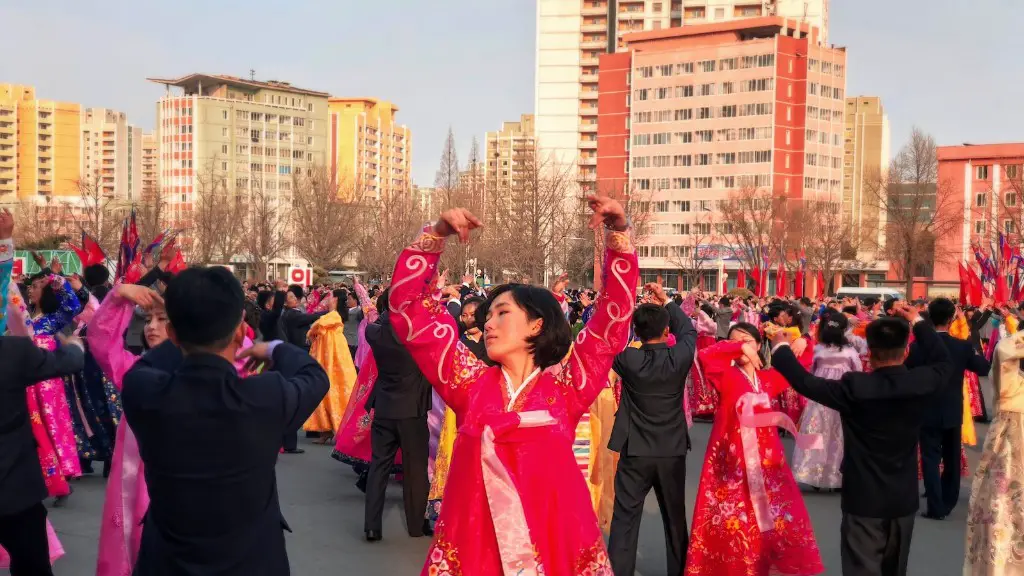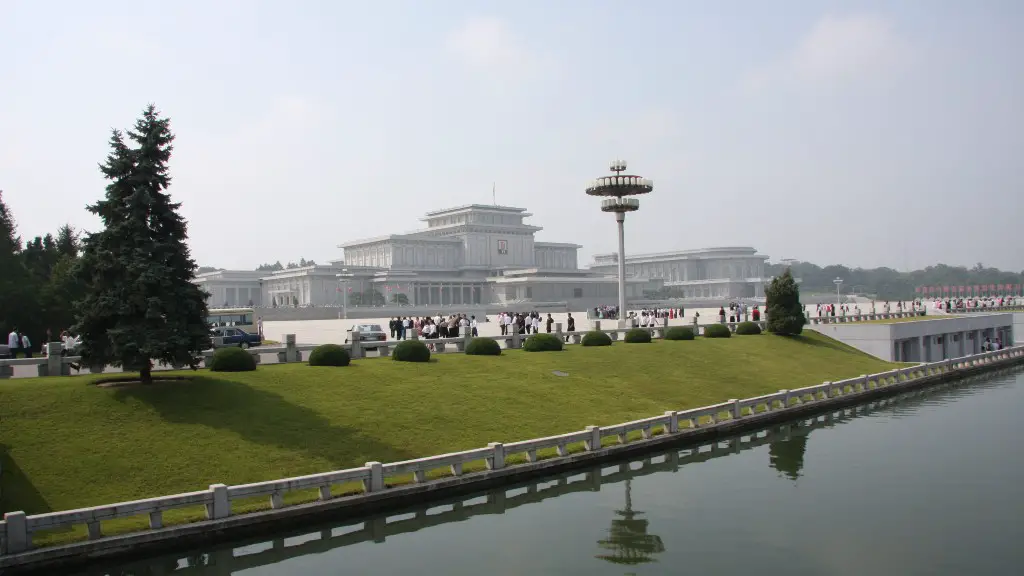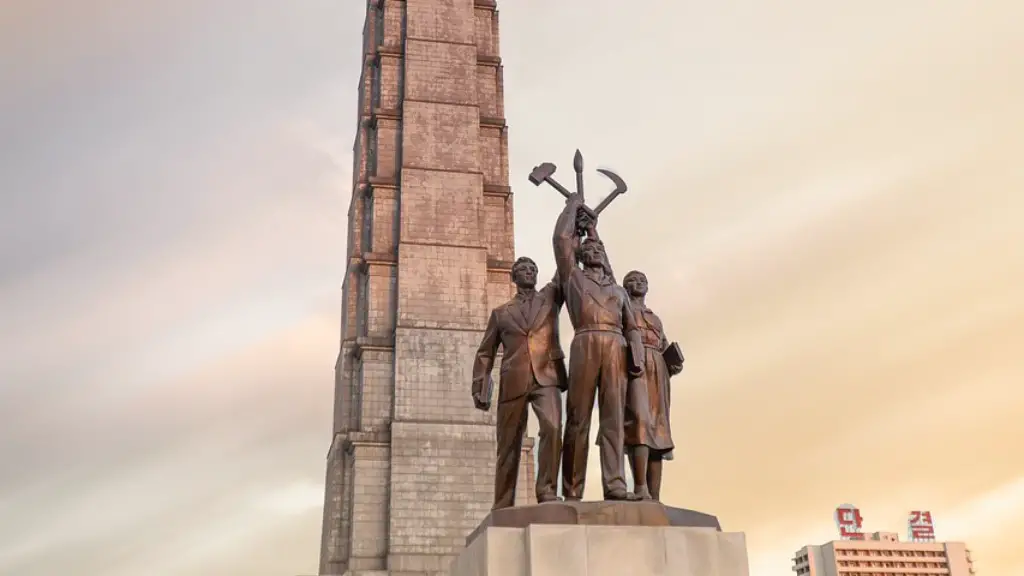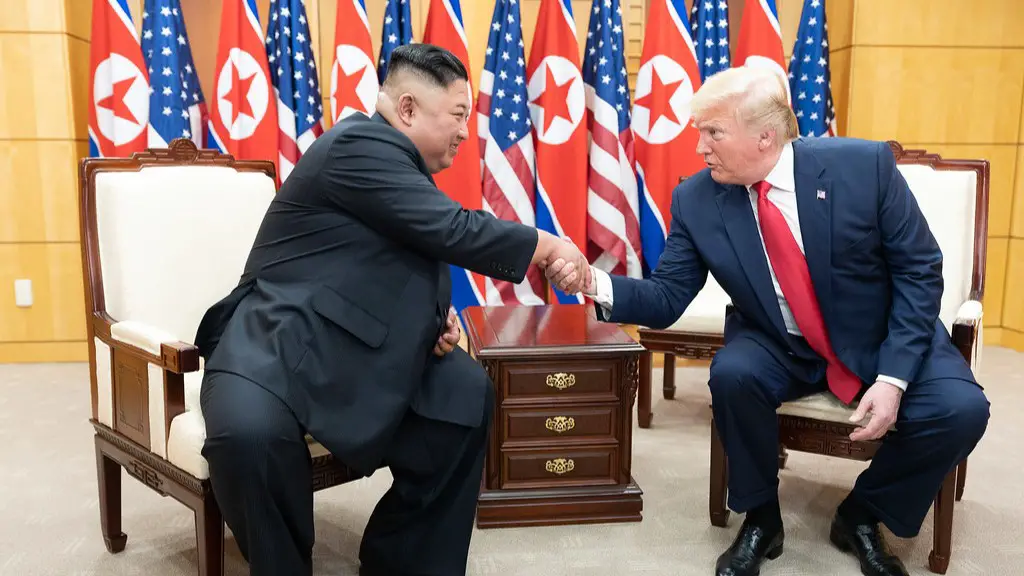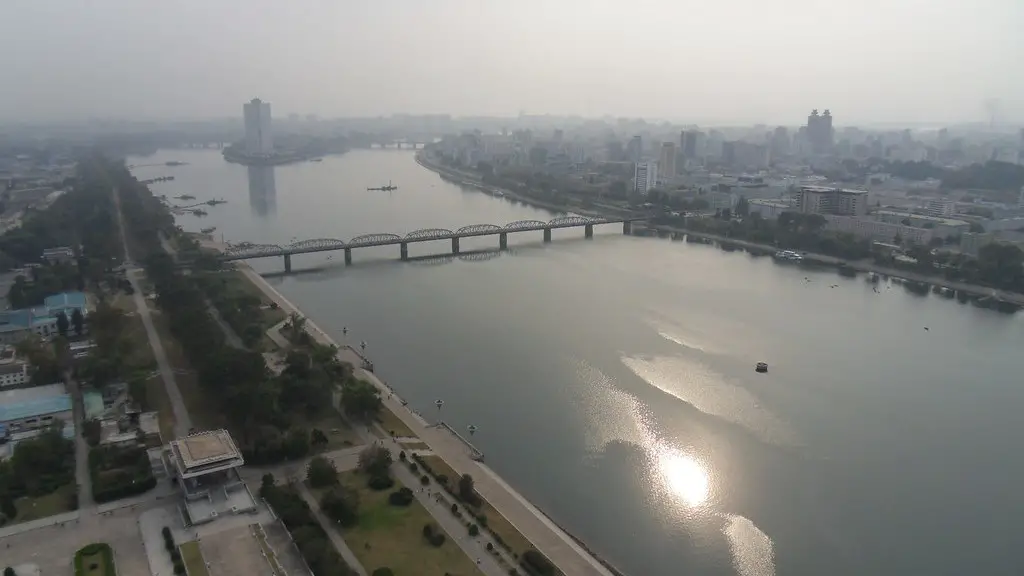Background of North Korea
North Korea, officially called the Democratic People’s Republic of Korea (DPRK), is a highly isolated country with a population of approximately 25 million people. It is located in East Asia, on the north side of the Korean Peninsula, which is bordered by the Sea of Japan, the East Sea, and China. North Korea is renowned for its secretive nature and oppressive state. The government maintains strict control over all information within the country, and smuggling of any kind of media or contaminants into the nation is prohibited.
Since the rule of Kim Il-sung, North Korea’s first leader, their government has established a single-party and a centrally controlled government with citizens having one-party rule. Kim Il-sung and his son and successor, Kim Jong-il, implemented a state-supported version of communism, socialism and containment doctrines known as Juche. North Korea’s current leader is Kim Jong-un, the third-generation leader of the Supreme Leader Kim Dynasty.
Information Control and Censorship
North Korea imposes heavy restrictions on its population when it comes to the consumption of media. Citizens are highly isolated from any information or opinion that does not reflect the beliefs of the ruling party. Moreover, in 2017 the government blocked all access to the Internet, drastically limiting the access to the rest of the world. The process is referred to as “information containment” in North Korea, as the government seeks to control the information its population can view.
In addition to the lack of access to the Internet, foreign media, including TV programmes, movies, books and magazines, are banned from entering the country. Breaking these laws is punishable by imprisonment or even execution. In order to enforce these restrictions, the government has created an organization called the Ministry of State Security, which is responsible for the surveillance and censorship of foreign media.
Furthermore, North Korea has created its own version of media outlets, purpose-built to propagate the country’s ideology. The state-run newspaper, Rodong Sinmun, is the most widely read newspaper among North Koreans, boasting a circulation of 3.5 million people. The newspaper covers a variety of topics, ranging from everyday life to international politics, and its content is highly controlled by the government.
Propaganda and Disinformation
The North Korean government heavily relies on propaganda and disinformation in order to shape public opinion. Radio programs and TV broadcasts are used to spread messages which echo the beliefs and goals of the regime. The government also sponsors cultural activities, such as sports and the arts, which are used to promote its values. In addition, the government pays people to write articles and create books that serve to glorify the ruling party.
One example of the propaganda used in North Korea is the worship of the Kim dynasty as gods by its citizens. North Koreans are taught to idolize and respect the Kim family, which is used to maintain control over their population. Public events where North Koreans praise the leadership are common, and anyone who tries to challenge the narrative is harshly punished.
The government has also been known to spread false information in order to create distrust between citizens and alternative sources of news. For example, the government has been known to spread rumors that other nations are planning to invade North Korea. These types of rumors are used to create a sense of fear in the population, which makes them more reliant on the government.
Human Rights Abuses
North Korea has a long history of violating human rights. The government denies its citizens basic rights such as freedom of speech, freedom of assembly, and freedom of the press. The government also engages in severe punishments and executions for those who dissent from the government’s rule.
North Koreans are also denied the right to religious freedom, with all citizens being forced to adhere to the beliefs and practices of the ruling party. Non-compliance is met with harsh punishment, including imprisonment. North Korea is also known to use torture in its prisons, and the cases of mistreatment in the nation’s prison camps are well-documented.
Moreover, the country has a long history of engaging in public executions in order to enforce its laws. Reports by Amnesty International have stated that public executions are common in North Korea, and that the government targets its own citizens in order to instill fear in the population.
Economic Situation
The economic situation in North Korea is dire, with the GDP per capita estimated to be approximately 1.34 trillion won in 2020 (approximately 2,300 USD). This is significantly lower than most developed nations, and the poverty rate is estimated to be as high as 50%, according to a BBC survey.
The nation is highly impoverished and imports most of its goods, including food. In addition, the government maintains a tight control over its currency, making it difficult to conduct international business. North Korea is also highly reliant on the Chinese economy, with Chinese investments making up a significant portion of North Korea’s GDP.
Moreover, the nation is heavily reliant on international aid, with organizations such as the United Nations providing relief to the country. In addition, organizations such as the United Nations World Food Programme have been providing aid to North Koreans since the 1990s.
Living Conditions
The living conditions in North Korea are extremely poor, with citizens living in poverty. Food shortages are common and the average citizen does not have access to basic necessities. In addition, healthcare services are limited and the quality of medical care is not up to international standards.
Education is also limited, with citizens having to obtain degrees from government-run universities. The government also seeks to control the educational curriculum and limit access to outside information. Most access to information comes from the state-run media outlets, which serve to further propagate the government’s ideology.
Finally, the government has been known to use forced labor and child labor in order to make up for the nation’s lack of capital. It is estimated that more than 200,000 North Koreans are enslaved in labor camps, which are used to produce goods for the outside world.
Conclusion
Overall, life in North Korea is marked by heavy restrictions, poverty and oppression. The government has crippled its population with a lack of access to information and a lack of basic necessities. In addition, citizens are denied basic human rights, and those who dissent from the government’s rule face harsh punishments. Most distressingly, North Korea is known to use its citizens as forced labor, leading to a highly impoverished population living in fear.
